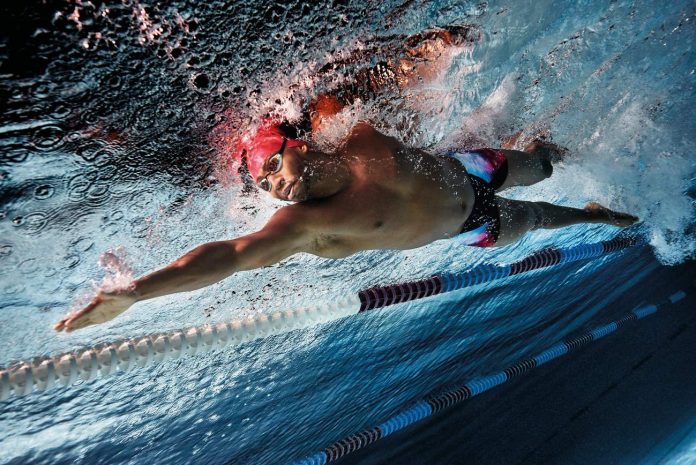It is natural to fear the open water – most of us do. It is common and you are not alone – whether it is fear of the lochness monster, or drowning or not even knowing what you’re afraid of. Anxiety is normal regardless your expertise in swimming. Work on conquering your fears – because anxiety and panic can be what stands in your way of a great swim leg.
Here are 5 steps to conquer your open water fear. The answer lies in your pre-race training, great mental prep and creating a strategy that works for you.
#1 Mimic The Chaos Of Open Water
Pick a crowded pool to swim in. Try sharing a lane with other people. This mimics the conditions of open water swimming whereby you will come into contact with plenty of people. There will be plenty of accidental kicking and punching. Put yourself in this uncomfortable situation so you will be able to get used to it.
#2 Practise In Open Water
 Photo Credits: Triathlete.com
Photo Credits: Triathlete.com
Practise in open water as often as possible. Organise group trainings in open water to put yourself out there as much as possible. Join open water swimming clinics. The best way to conquer your fear is to expose yourself to it as much as possible. Some time down the road, this irrational fear becomes just a numb feeling.
#3 Practise Mental Visualisation
Mental Visualisation is a technique used by many elite athletes – to calm their mind. Imagine yourself in an open water environment and imagine yourself staying calm, concentrating on your strokes and moving forward. Imagine yourself with controlled breathing and even strokes and just swimming. This will really help you during race day.
#4 Perfect Your Race day Strategy
Familiarise yourself with the race course and surroundings. The more familiar you are, the less panic you will be. Plan out – which wave you’re going to be in and which side you want to start from – the inner or the outer part of the loop. With familiarity, we are more comfortable and less likely to panic and feel anxious.
#5 Talk To Yourself
 Photo Credits: Today
Photo Credits: Today
Cut all the negative talk and give yourself a positive pep talk. Constantly remind yourself that you can do it and that you’ve put in the hard work, effort and dedication for the swim. Trust the process! Remind yourself not to panic and take long deep breaths to calm yourself and keep your heart rate down. Move away from the chatter and crowd of other swimmers to keep yourself relaxed and calm.
Here’s to a good jolly swim with these 5 tips!


